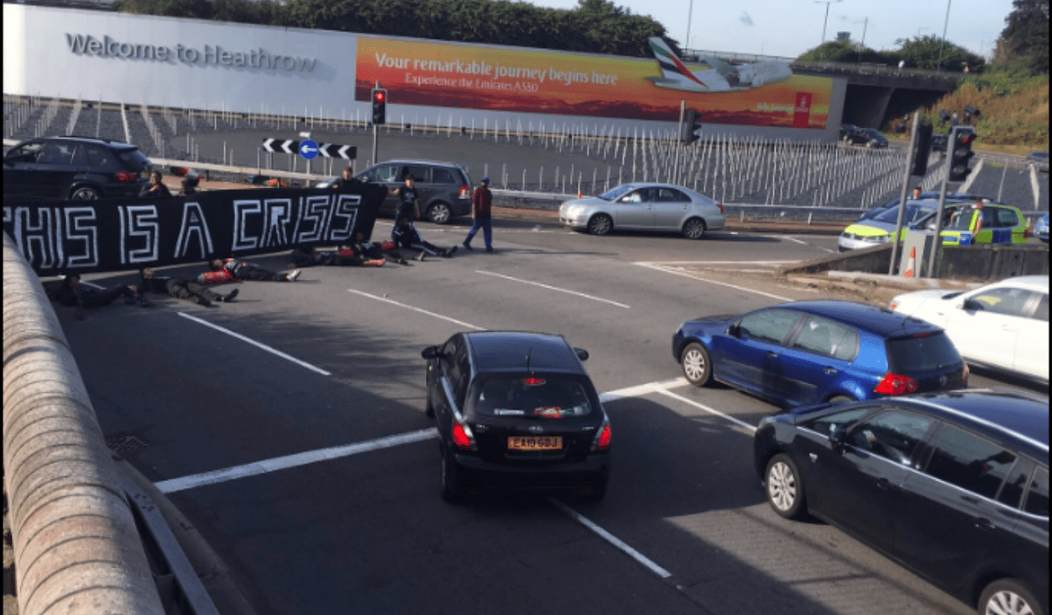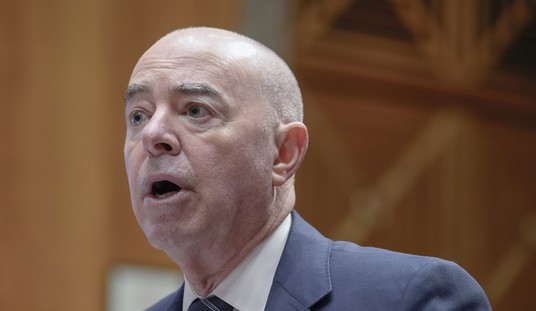Black Lives Matter activists have blocked roads in three major British cities, including London, bringing traffic to a standstill outside Heathrow Airport. Demonstrators slowed traffic in London, Birmingham, and Nottingham during the morning rush hour on Friday. In Britain, BLM has a new twist — lumping in the refugee crisis.
“All black lives matter. This movement is for those who die daily, trying to find safety, fleeing conflict Britain is responsible for,” says one black woman in the official #Shutdown video. As she speaks, the video shows an image of refugees crammed onto a boat. Then another black woman highlights “the 3,034 black and brown bodies drowned in the Mediterranean, in 2016 alone.”
Here is the video:
We call a nationwide #Shutdown because #BlackLivesMatter, because this is a crisis.
05.08016 pic.twitter.com/dLaqBcS9DJ
— #BlackLivesMatterUK (@ukblm) August 4, 2016
Black Lives Matter UK (UKBLM), a loose network of race activists, called for the protests as a “Shutdown” to coincide with the fifth anniversary of the death of Mark Duggan, who was shot and killed by police during a traffic stop. The new immigration coloring of the Black Lives Matter movement makes it a potential powder keg in Europe, where high levels of immigration from Middle East conflicts have already sparked unrest. The last thing Europe needs is some Ferguson-style rioting by displaced immigrants — in the name of racial justice. Protesters in Nottingham’s city center and on the road to Heathrow remained in place until midday, causing major delays, Britain’s The Guardian reported. “The delays for people on their way to holidays are regrettable but we’re talking about injustices, 1,500 families [whose relatives have died in police custody], who have been given no justice, no convictions,” UKBLM activist Natasha Nkonde told The Guardian. Nkonde blended the complaints of America’s Black Lives Matter movement (lack of convictions in cases where black people died in police custody) with the new refugee crisis angle. She mentioned three specific deaths, those of Mzee Mohammed, Sarah Reed, and Jermaine Baker — names also mentioned in the video. “We’re upset about the 3,0000 [sic] deaths in the Mediterranean this year and of course post-Brexit we know there’s been a 57% increase in hate crimes. We are seeing people talking about how they are being attacked, abused in the streets.” “Other forms of protests have been exhausted and so the disruption today is bringing back to the mainstream discussions around black lives and the racist structures and inequalities we know about,” Nkonde concluded.
Next Page: Scenes from each of the three protests. The Heathrow protesters unfurled a banner reading “This is crisis,” and lay on the road chanting, “Black Lives Matter!” bringing holiday traffic to the airport to a standstill. Police said they were called to the scene before 8:30 a.m., and that they had arrested ten people.
#blacklivesmatter protestors in the UK have just blocked the motorway route into Heathrow pic.twitter.com/lpTqk6qyAH — SymeonBrown (@symeonbrown) August 5, 2016
In Nottingham, protesters lay across tram lines. A police spokesman said officers were on scene, negotiating with protesters. “Our priority will remain the safety of everyone involved and to bring the demonstration to a peaceful conclusion,” he told The Guardian.
Black lives matter protest Nottingham town centre, chained themselves to the floor, all trams and most buses stopped pic.twitter.com/Z8hWeNRVSK
— Joe Howey (@howey555) August 5, 2016
In Birmingham, protesters chanted the American slogan, “No Justice, No Peace!” as they blocked traffic to the city’s airport. A police spokeswoman said four women and one man had been arrested close to the Birmingham airport before 7:30 a.m. on suspicion of obstructing the highway. She said it was not clear what the protest was about.
Successful blockade Birmingham #Shutdown Black Lives Matter #BLMUK pic.twitter.com/mdcgTFT1MA — Maya Evans (@MayaAnneEvans) August 5, 2016
In addition to the blockades, BLM rallies are planned for Friday in Manchester, Nottingham, and London, at 6 p.m. and 6:30 p.m.
The British movement is following in the footsteps of America’s Black Lives Matter movement, focusing on statistics showing that black people are more likely to be stopped and searched, arrested, convicted, die in police custody, and to receive harsher sentences. It also argued that black people are more likely to be unemployed and more likely to be excluded from school (as immigrants?).
The protesters also cited an increase in reported hate crimes following the Brexit vote, which has been widely reported as though it were an ongoing trend, although the original 57 percent figure comes from just four days after the vote, compared to a similar period four weeks before the vote. Given the anti-Brexit slant in the press, it is likely overstated.









Join the conversation as a VIP Member